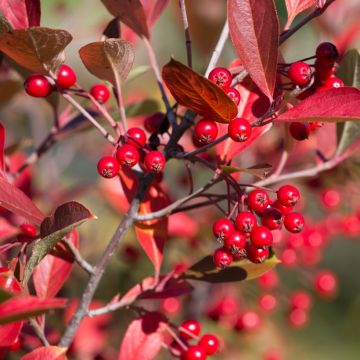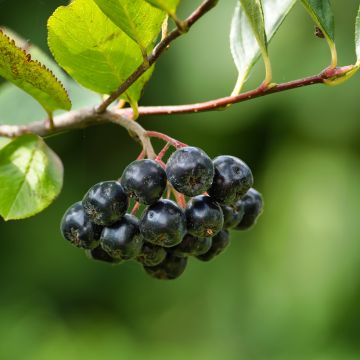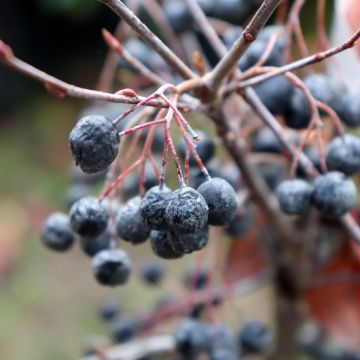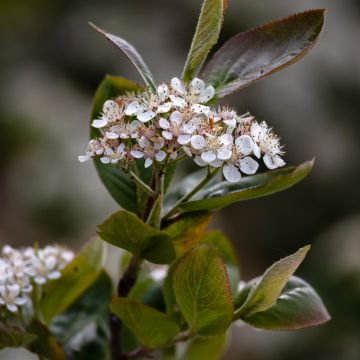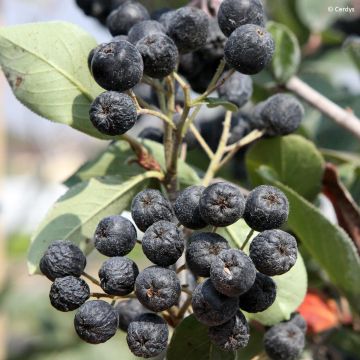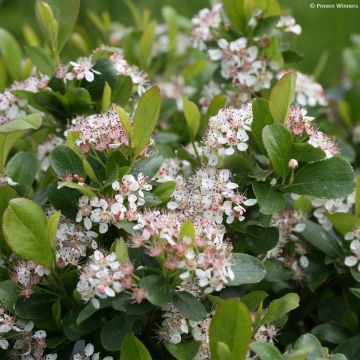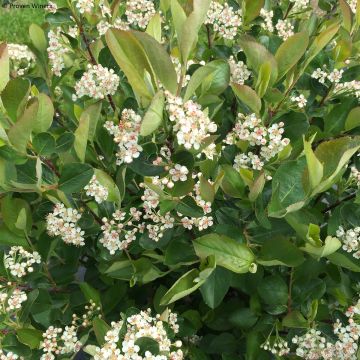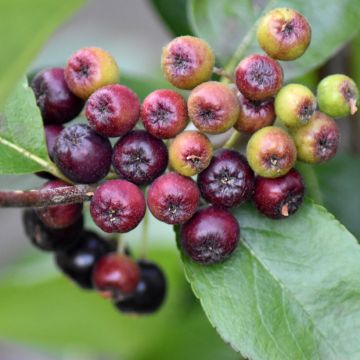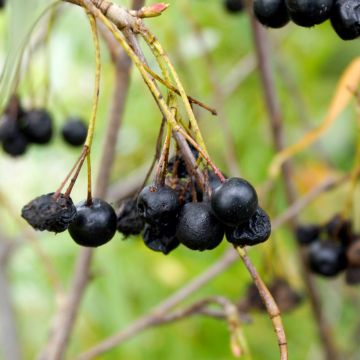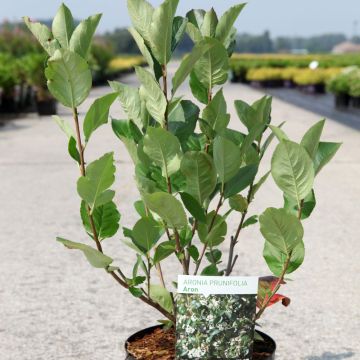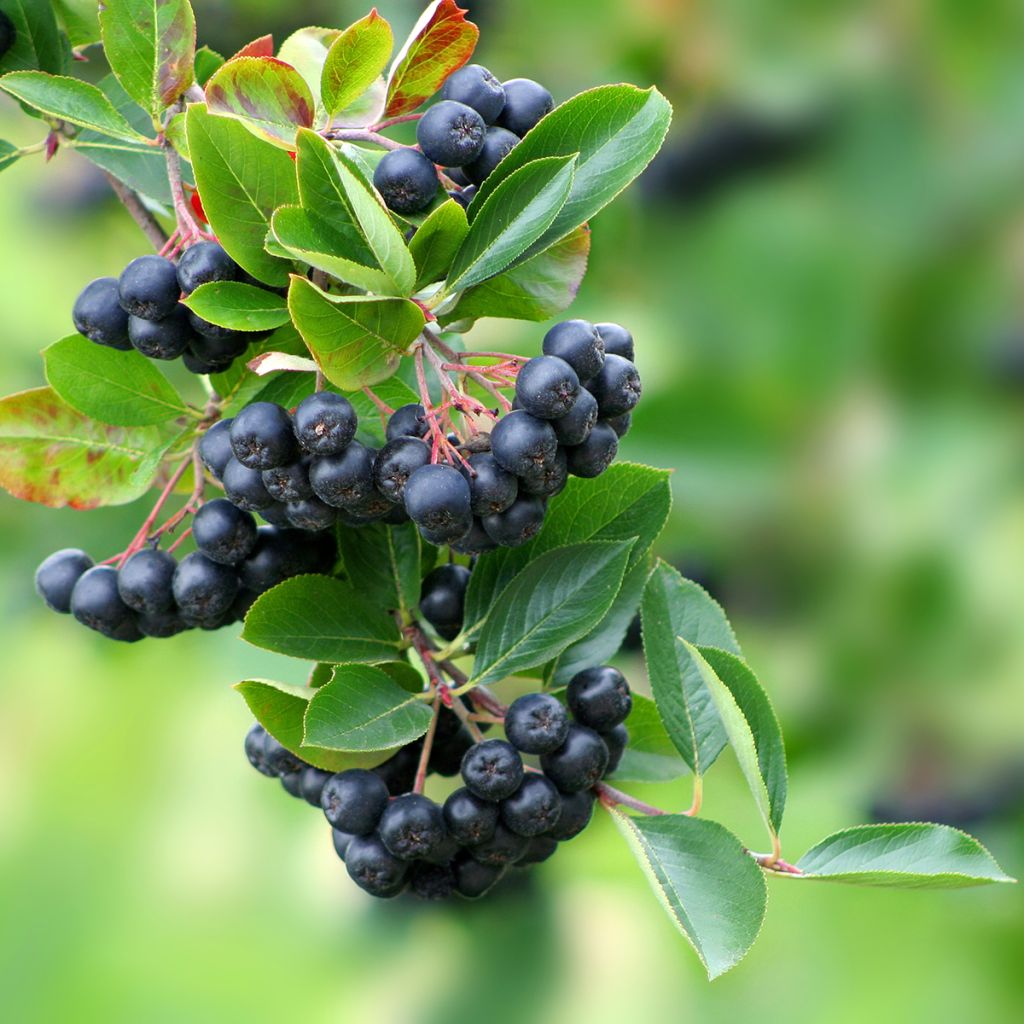

Aronia prunifolia Lowberry Little Helpers
Aronia prunifolia Lowberry Little Helpers
Aronia x prunifolia Lowberry® 'Little Helpers®'
Purple Chokeberry
Thanks to efficient packaging, the plant arrived in excellent condition and I planted it immediately. I had some concerns though as the season was already well advanced. After a month, the branches have grown by 15 cm, the leaves have doubled in size, and for the past 3 weeks the aronia has been flowering generously. Happy!
Paul, 06/05/2024
Special offer!
Receive a €20 voucher for any order over €90 (excluding delivery costs, credit notes, and plastic-free options)!
1- Add your favorite plants to your cart.
2- Once you have reached €90, confirm your order (you can even choose the delivery date!).
3- As soon as your order is shipped, you will receive an email containing your voucher code, valid for 3 months (90 days).
Your voucher is unique and can only be used once, for any order with a minimum value of €20, excluding delivery costs.
Can be combined with other current offers, non-divisible and non-refundable.
Why not try an alternative variety in stock?
View all →This plant carries a 6 months recovery warranty
More information
We guarantee the quality of our plants for a full growing cycle, and will replace at our expense any plant that fails to recover under normal climatic and planting conditions.

Description
The Aronia Lowberry 'Little Helpers' is a variety of aronia with a naturally compact growth habit, reaching a maximum height of 80 cm (32in) at maturity, but providing high yields. Self-fertile, the bush is self-sufficient and makes an excellent potted plant on the terrace or balcony. The dark purple-black berries, resembling blackcurrants or blueberries, have a slightly tart taste, but are much milder than other varieties and are also less acidic. Highly consumed in Asia, they are full of anthocyanins, vitamins, and antioxidants. They are harvested in September-October.
The Aronia Lowberry 'Little Helpers' has the genes of the Aronia melanocarpa, the black-fruited aronia, and those of the Aronia arbutifolia, the aronia with arbutus-like leaves. It is now extensively planted in Eastern European countries to meet the demand of the Asian market. Native to Canada and the northeastern United States, aronias are very cold-resistant plants that thrive in cool, slightly acidic soils. Aronia is a distant cousin of roses, plum trees, and blackberries, a member of the vast rose family.
'Little Helpers' is a compact form that does not exceed 60 to 80 cm (24 to 32in) in height after 5 years, with a similar spread. It is an upright, sparsely branched bush with an open habit. Its bark is smooth, reddish-brown. It bears alternate, simple, ovate, finely toothed leaves, measuring 4 to 5 cm (2in) in length, with a satin dark green colour, which truly blaze in autumn in shades of reddish-orange. In April-May, its white flowers speckled with pale pink, measuring 2 cm (1in) in diameter, appear. Gathered in corymbs, they are very numerous, highly fragrant and melliferous. They give way to clusters of round fruits, 1.5 cm (1in) in diameter, initially greenish-purple and then turning dark purple and shiny, while the peduncles that bear them turn red. This fruiting, with a slightly tart and bitter taste, has enough sugar in this variety to balance the bitterness. Birds love it, so it is advisable to cover the bush with a protective net to enjoy the harvest.
Aronia Lowberry 'Little Helpers' is perfect for container cultivation, but it is also suitable for planting in the ground, in a border of perennial plants and shrubs. Place it in a mini-fruit hedge, in groups of 3 plants, with other compact berry bushes and aromatic plants. Undemanding, it performs best in cool, deep, non-chalky soil that is slightly acidic.
The fruits of Aronia can be consumed fresh and cooked, in jam or in juice, which can be mixed, for example, with cranberry juice and apple juice. Chinese pharmacopoeia ascribes medicinal and beneficial health properties to the berries of this fruit variety of Aronia 'Little Helpers'. Its richness in polyphenols, particularly anthocyanins, B and C vitamins (3 times more than oranges), minerals, and fibre, make Aronia berries one of the most nutritionally interesting small fruits.
Report an error about the product description
Aronia prunifolia Lowberry Little Helpers in pictures
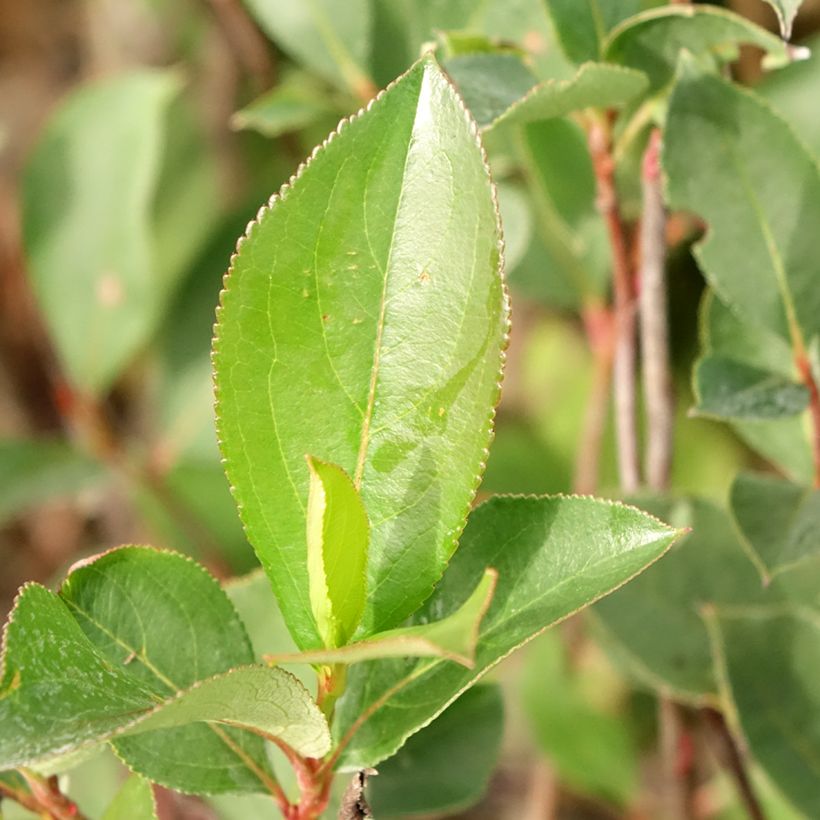

Plant habit
Fruit
Flowering
Foliage
Botanical data
Aronia
x prunifolia
Lowberry® 'Little Helpers®'
Rosaceae
Purple Chokeberry
North America
Other Aronia
View all →Planting and care
The 'Little Helpers' Aronia is preferably planted in early autumn in good fertile garden soil, humus-bearing and non-chalky. While it is relatively tolerant, it prefers deep, moist to wet, light and slightly acidic soils. Plant it in a sunny, non-burning or semi-shaded location. In the shade, the colours are duller and the fruiting is less abundant and less tasty. The hardiness of this bush is excellent, even in wet soil. Mulch and water well to help it establish, especially in the first summers. Remove excess suckers that hinder fruiting. Prune the older branches at the end of winter. It is naturally resistant to diseases and parasites, but can sometimes be prone to rust.
Planting period
Intended location
Care
-
, onOrder confirmed
Reply from on Promesse de fleurs
Haven't found what you were looking for?
Hardiness is the lowest winter temperature a plant can endure without suffering serious damage or even dying. However, hardiness is affected by location (a sheltered area, such as a patio), protection (winter cover) and soil type (hardiness is improved by well-drained soil).

Photo Sharing Terms & Conditions
In order to encourage gardeners to interact and share their experiences, Promesse de fleurs offers various media enabling content to be uploaded onto its Site - in particular via the ‘Photo sharing’ module.
The User agrees to refrain from:
- Posting any content that is illegal, prejudicial, insulting, racist, inciteful to hatred, revisionist, contrary to public decency, that infringes on privacy or on the privacy rights of third parties, in particular the publicity rights of persons and goods, intellectual property rights, or the right to privacy.
- Submitting content on behalf of a third party;
- Impersonate the identity of a third party and/or publish any personal information about a third party;
In general, the User undertakes to refrain from any unethical behaviour.
All Content (in particular text, comments, files, images, photos, videos, creative works, etc.), which may be subject to property or intellectual property rights, image or other private rights, shall remain the property of the User, subject to the limited rights granted by the terms of the licence granted by Promesse de fleurs as stated below. Users are at liberty to publish or not to publish such Content on the Site, notably via the ‘Photo Sharing’ facility, and accept that this Content shall be made public and freely accessible, notably on the Internet.
Users further acknowledge, undertake to have ,and guarantee that they hold all necessary rights and permissions to publish such material on the Site, in particular with regard to the legislation in force pertaining to any privacy, property, intellectual property, image, or contractual rights, or rights of any other nature. By publishing such Content on the Site, Users acknowledge accepting full liability as publishers of the Content within the meaning of the law, and grant Promesse de fleurs, free of charge, an inclusive, worldwide licence for the said Content for the entire duration of its publication, including all reproduction, representation, up/downloading, displaying, performing, transmission, and storage rights.
Users also grant permission for their name to be linked to the Content and accept that this link may not always be made available.
By engaging in posting material, Users consent to their Content becoming automatically accessible on the Internet, in particular on other sites and/or blogs and/or web pages of the Promesse de fleurs site, including in particular social pages and the Promesse de fleurs catalogue.
Users may secure the removal of entrusted content free of charge by issuing a simple request via our contact form.
The flowering period indicated on our website applies to countries and regions located in USDA zone 8 (France, the United Kingdom, Ireland, the Netherlands, etc.)
It will vary according to where you live:
- In zones 9 to 10 (Italy, Spain, Greece, etc.), flowering will occur about 2 to 4 weeks earlier.
- In zones 6 to 7 (Germany, Poland, Slovenia, and lower mountainous regions), flowering will be delayed by 2 to 3 weeks.
- In zone 5 (Central Europe, Scandinavia), blooming will be delayed by 3 to 5 weeks.
In temperate climates, pruning of spring-flowering shrubs (forsythia, spireas, etc.) should be done just after flowering.
Pruning of summer-flowering shrubs (Indian Lilac, Perovskia, etc.) can be done in winter or spring.
In cold regions as well as with frost-sensitive plants, avoid pruning too early when severe frosts may still occur.
The planting period indicated on our website applies to countries and regions located in USDA zone 8 (France, United Kingdom, Ireland, Netherlands).
It will vary according to where you live:
- In Mediterranean zones (Marseille, Madrid, Milan, etc.), autumn and winter are the best planting periods.
- In continental zones (Strasbourg, Munich, Vienna, etc.), delay planting by 2 to 3 weeks in spring and bring it forward by 2 to 4 weeks in autumn.
- In mountainous regions (the Alps, Pyrenees, Carpathians, etc.), it is best to plant in late spring (May-June) or late summer (August-September).
The harvesting period indicated on our website applies to countries and regions in USDA zone 8 (France, England, Ireland, the Netherlands).
In colder areas (Scandinavia, Poland, Austria...) fruit and vegetable harvests are likely to be delayed by 3-4 weeks.
In warmer areas (Italy, Spain, Greece, etc.), harvesting will probably take place earlier, depending on weather conditions.
The sowing periods indicated on our website apply to countries and regions within USDA Zone 8 (France, UK, Ireland, Netherlands).
In colder areas (Scandinavia, Poland, Austria...), delay any outdoor sowing by 3-4 weeks, or sow under glass.
In warmer climes (Italy, Spain, Greece, etc.), bring outdoor sowing forward by a few weeks.






























